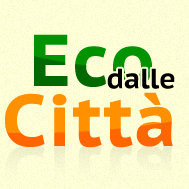Eco dalle Città APS, was founded in 2009 as a spin-off of the homonymous environmental online journal, with the goal of supporting it in the dissemination of environmental initiatives within urban centers through awareness-raising activities, aimed to promote lifestyles, production methods, and consumption habits that are ecologically and socially sustainable.
Since 2016, it has been running the RePoPP Project – Progetto Organico Porta Palazzo, which aims to promote an efficient system for collecting organic waste and still marketable fruit and vegetable products in the Porta Palazzo food market, the largest and most culturally diverse in the city of Turin. This is achieved through awareness and education activities on the proper separation of organic waste, as well as the recovery and redistribution of food surpluses.
Every day, from Monday to Saturday, the Ecomori and the Sentinelle dei Rifiuti collect food surpluses from the market stalls, and then redistribute them to those in need by filling boxes with a mix of food that meets both the quantity and nutritional quality needs of a family for two days.
Over time, the project has evolved from an experimental initiative to a more structured program, with significant developments. In particular, since 2020, the project has expanded to six additional markets in the city: Via Porpora, Corso Cincinnato, Borgo Vittoria, Piazza Foroni, Onorato Vigliani, and Santa Rita.
This project has several key aspects: environmental, social, and communicative.
From an environmental standpoint, it helps reduce food waste, contributing to the creation of a true circular economy where waste is minimized. Furthermore, considering that each kilogram of food waste produces between 2 and 6 kilograms of CO2, the recovery of food surpluses helps prevent the emission of many tons of CO2 into the atmosphere.
From a social perspective, the project also involves asylum seekers in the collection process, providing them with opportunities to work and integrate into the city’s community.
Finally, the project has an important communicative and awareness-raising component, as the staff involved in recovering unsold goods also engages with market vendors—particularly those selling haberdashery and clothing—on the correct disposal of waste according to municipal regulations, promoting awareness of the penalty system, which can include the suspension of activities after repeated violations.
This project is flanked by two others, implemented in a network with other third sector associations: the Carovana Salvacibo, a delivery service of fruit and vegetables collected free of charge at the CAAT (Centro Agro Alimentare Torino) from edible but no longer saleable foodstuffs, and the Cucina Ecomora, which provides ready meals in single-serving containers made from the same foodstuffs collected.


